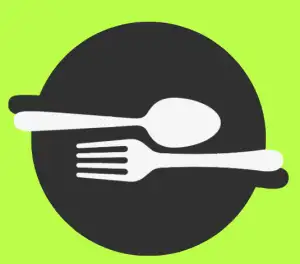Plant Power: Discover the Best High-Protein Vegetarian Foods for Optimal Health

- Benefits of a High Protein Vegetarian Diet
- Top Sources of Plant-Based Protein
- Legumes: A Protein Powerhouse for Vegetarians
- Nuts and Seeds: Nutrient-Dense Protein Options
- Incorporating Whole Grains for Protein Boost
- Dairy and Plant-Based Alternatives for Protein Intake
- Superfoods for Vegetarian Protein Needs
- Meal Ideas and Recipes for High Protein Vegetarian Meals
For those who choose to follow a vegetarian diet, finding sources of high-quality protein can sometimes be a challenge. However, with the right knowledge and planning, it is entirely possible to meet your protein needs without consuming meat or fish. In fact, there are numerous plant-based foods that are not only rich in protein but also offer a wide range of health benefits. In this article, we will explore the best high-protein vegetarian foods that can help you achieve optimal health while enjoying delicious and nutritious meals. So let's dive into the world of plant power and discover the abundance of protein-rich options available for vegetarians!
Benefits of a High Protein Vegetarian Diet
A high protein vegetarian diet offers numerous benefits for optimal health. Firstly, it provides all the essential amino acids required for muscle growth and repair. Secondly, it helps in weight management as protein-rich foods keep you feeling fuller for longer, reducing the chances of overeating. Additionally, a high protein vegetarian diet can improve heart health by lowering cholesterol levels and reducing the risk of cardiovascular diseases. Lastly, it promotes overall well-being by boosting energy levels, supporting immune function, and enhancing brain function. Embracing a high protein vegetarian lifestyle can lead to a healthier and more vibrant life.
Top Sources of Plant-Based Protein
For those following a vegetarian diet, obtaining enough protein is essential for optimal health. Luckily, there are plenty of plant-based sources that are rich in this vital nutrient. Legumes such as lentils, chickpeas, and black beans are excellent options, providing not only protein but also fiber and essential minerals. Nuts and seeds like almonds, chia seeds, and hemp seeds are also packed with protein and healthy fats. Incorporating whole grains like quinoa and brown rice into your meals can further boost your protein intake. Additionally, dairy products and plant-based alternatives like tofu and tempeh offer a good amount of protein. Finally, superfoods such as spirulina and nutritional yeast can be added to smoothies or sprinkled on dishes to enhance their protein content. By incorporating these top sources of plant-based protein into your diet, you can meet your nutritional needs while enjoying the benefits of a vegetarian lifestyle.
Legumes: A Protein Powerhouse for Vegetarians
Legumes, such as lentils, chickpeas, and black beans, are a protein powerhouse for vegetarians. These versatile plant-based foods are not only rich in protein but also packed with fiber, vitamins, and minerals. Just one cup of cooked lentils provides around 18 grams of protein, making it an excellent choice for those looking to boost their protein intake. Legumes can be easily incorporated into various dishes like soups, stews, salads, and even veggie burgers. With their high protein content and numerous health benefits, legumes are a must-have in any vegetarian's diet.
Nuts and Seeds: Nutrient-Dense Protein Options
Nuts and seeds are not only delicious snacks but also excellent sources of protein for vegetarians. These tiny powerhouses are packed with essential nutrients, including healthy fats, fiber, vitamins, and minerals. Almonds, walnuts, cashews, and pistachios are all great choices. Additionally, chia seeds, flaxseeds, hemp seeds, and pumpkin seeds offer a significant protein punch. Sprinkle them on salads or yogurt, blend them into smoothies or use them as toppings for your favorite dishes to add a nutritious boost of plant-based protein to your diet.
Incorporating Whole Grains for Protein Boost
Incorporating whole grains into your diet is a great way to boost your protein intake as a vegetarian. Whole grains such as quinoa, brown rice, and oats are not only rich in protein but also provide essential nutrients like fiber, vitamins, and minerals. These grains can be easily incorporated into various dishes like salads, stir-fries, and soups. Additionally, whole grain breads and pastas are excellent options for a protein-packed meal. By including whole grains in your diet, you can ensure that you are getting the necessary protein for optimal health while enjoying delicious and nutritious meals.
Dairy and Plant-Based Alternatives for Protein Intake
Dairy products have long been recognized as a great source of protein for vegetarians. Greek yogurt, cottage cheese, and whey protein are all excellent options. However, for those who prefer plant-based alternatives, there are plenty of options available. Soy milk, almond milk, and oat milk are all fortified with protein and can be used in place of dairy milk. Tofu and tempeh are also high in protein and can be used as meat substitutes in various dishes. Additionally, plant-based protein powders made from pea, hemp, or brown rice are becoming increasingly popular among vegetarians. These alternatives provide ample protein while still adhering to a vegetarian lifestyle.
Superfoods for Vegetarian Protein Needs
Superfoods are nutrient-dense foods that provide an extra boost of protein for vegetarian diets. Quinoa, a complete protein source, contains all essential amino acids. Chia seeds are rich in omega-3 fatty acids and pack a protein punch. Spirulina, a blue-green algae, is a powerhouse of protein and other essential nutrients. Hemp seeds offer a complete protein profile and are easily digestible. Adding these superfoods to your diet will ensure you meet your protein needs while enjoying optimal health.
Meal Ideas and Recipes for High Protein Vegetarian Meals
1. Quinoa Buddha Bowl: Cook quinoa and top it with roasted chickpeas, sautéed vegetables, avocado slices, and a drizzle of tahini dressing.
2. Lentil Curry: Sauté onions, garlic, and spices in a pan. Add cooked lentils, coconut milk, and simmer until flavors meld together. Serve over brown rice or with naan bread.
3. Chickpea Salad Sandwich: Mash chickpeas with vegan mayo, Dijon mustard, celery, red onion, and spices. Spread onto whole grain bread and add lettuce and tomato for a delicious sandwich.
4. Tofu Stir-Fry: Marinate tofu in soy sauce, ginger, garlic, and sesame oil. Stir-fry with your favorite vegetables like bell peppers, broccoli, and snap peas. Serve over brown rice or noodles.
5. Black Bean Tacos: Sauté black beans with onions, garlic, cumin, and chili powder. Fill corn tortillas with the bean mixture and top with salsa, avocado slices, and cilantro.
6. Spinach and Chickpea Salad: Combine baby spinach leaves with cooked chickpeas, cherry tomatoes, cucumber slices, feta cheese (or vegan alternative), and a lemon vinaigrette dressing.
7. Veggie Burger: Make a homemade veggie burger using ingredients like black beans or lentils mixed with breadcrumbs, onions, garlic powder, cumin, salt & pepper. Grill or bake until crispy on the outside.
These meal ideas provide a variety of flavors while ensuring you get enough protein from plant-based sources to support your vegetarian lifestyle. Enjoy exploring these recipes as you embrace the benefits of high protein vegetarian meals!
In conclusion, embracing a protein-rich vegetarian lifestyle can have numerous benefits for your health and well-being. By incorporating high-protein vegetarian foods into your diet, you can meet your nutritional needs while enjoying a variety of delicious and satisfying meals. Whether you choose legumes, nuts and seeds, whole grains, dairy or plant-based alternatives, or superfoods, there are plenty of options to ensure you get an adequate amount of protein. So why not explore the world of plant power and discover the amazing flavors and health benefits that await you? Start your journey towards optimal health today!
Published: 26. 12. 2023
Category: Health



